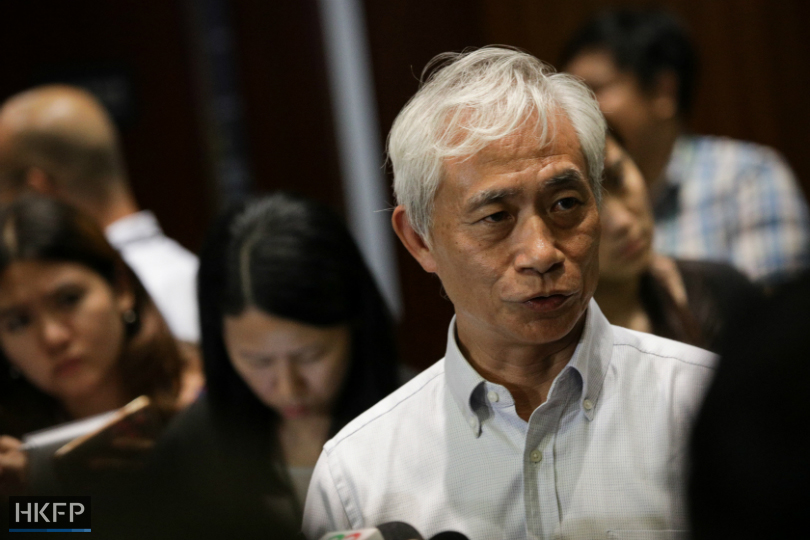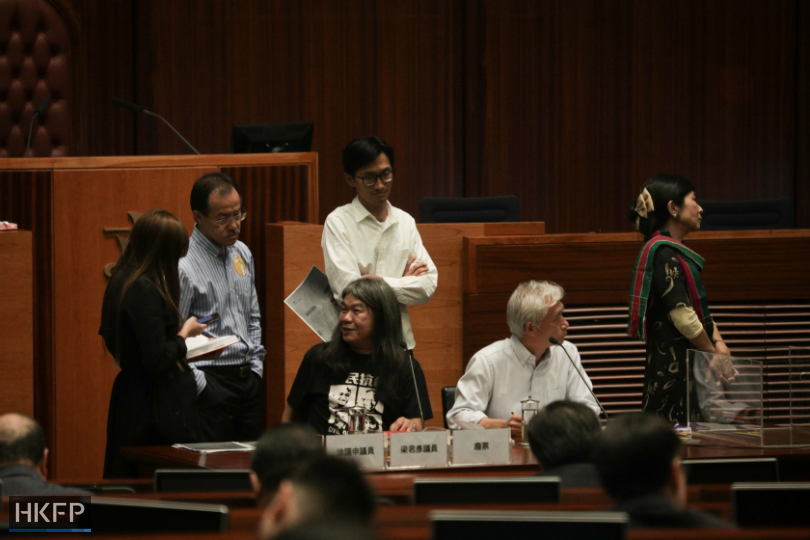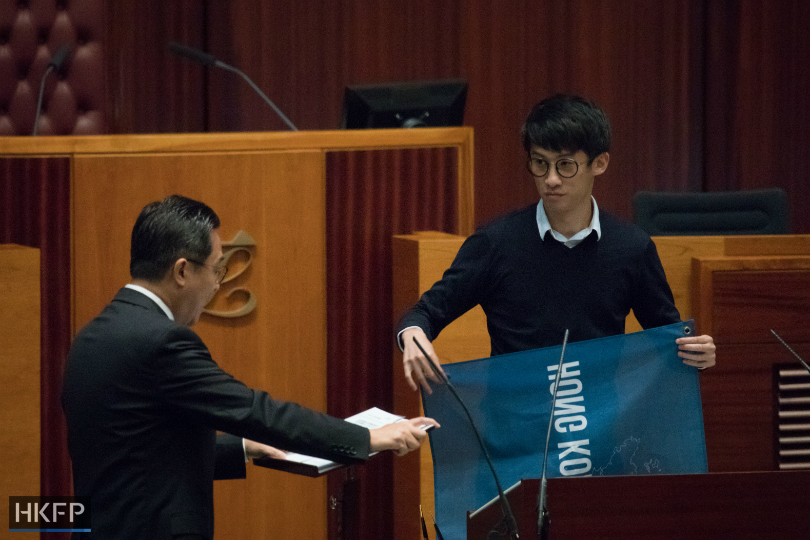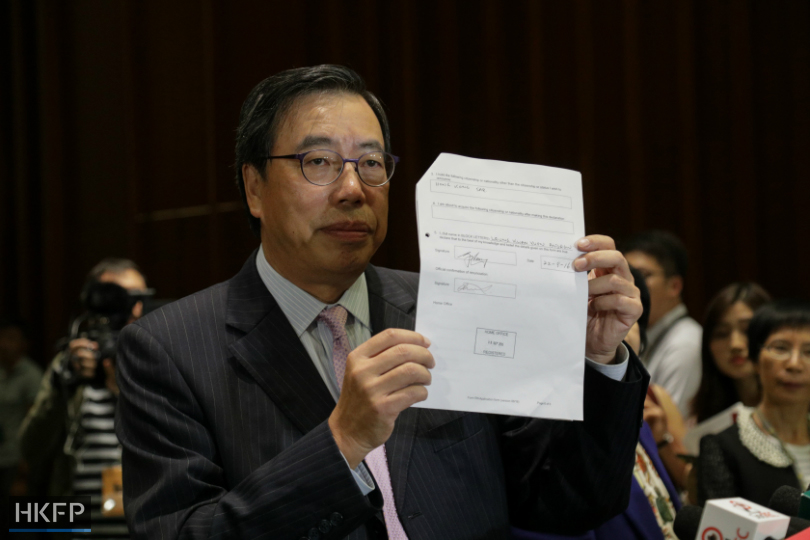Veteran pro-democracy lawmaker Leung Yiu-chung has apologised for a critical decision he made on Wednesday whereby he gave up chairing the meeting on the presidential election of the Legislative Council. The move may have led to the controversial election of pro-Beijing figure Andrew Leung Kwan-yuen.

As Leung was the LegCo member with the second highest seniority after presidential candidate James To Kun-sun of the Democratic Party, he was acting as presiding member to chair a meeting for the election of the new president, according to LegCo rules. At the time, all but three pro-democracy lawmakers had completed taking their oaths.
However, the meeting was dominated by questions from fellow lawmakers over Andrew Leung’s eligibility to stand for president. Lawmakers questioned whether he had completed the process to renounce his right of abode in the UK – a requirement for the role.

Another issue concerned whether the three lawmakers, whom the LegCo secretary-general said had failed to complete their oaths as required, could be present at the meeting or even vote in the election.
Leung quits
Leung Yiu-chung, of the Neighbourhood and Worker’s Service Centre, decided to give up chairing the meeting after around two hours, saying that there “many issues could not be solved.”
“It would not be meaningful to continue chairing it, I would rather give it to another colleague,” Leung said at the time.

He said he had not enjoyed chairing meetings during his 21-year tenure, and lawmakers were standing strong on their stance. “It was not ideal to chair it, if I cannot provide full answers to questions from lawmakers.”
He added there was vagueness in his role in that – since he was not the actual president – he was reluctant to exercise powers which only the president can use.
Leung allowed the three whose oaths were rejected to be present and speak at the meeting, and said he may possess the power to expel the three to move the election to a vote. But he said that the decision to exercise such powers was a difficult one.

After Leung Yiu-chung relieved himself from the role, the meeting was then chaired by Abraham Shek Lai-him, another senior lawmaker. Andrew Leung was elected president in a controversial vote soon after.

‘A sinner for 1,000 years’
Leung Yiu-chung, a labour activist, came under fire on social media for his decision, with commenters insisting that he had allowed the vote to be forced through. On a RTHK programme on Wednesday night, Leung said that he read on Facebook that he was branded “a sinner for 1,000 years.”
Pro-democracy camp supporters said that he should have adjourned the meeting to stall the election. Leung said: “In fact I did not have the power to adjourn it.”
“I offer my sincere apology to those who put their expectations in me,” he added. “I didn’t want to [give up], but within the limitations, I didn’t have many choices – I let you all down, I couldn’t block Andrew Leung from becoming president.”
“If I didn’t allow the three [whose oaths were rejected] to vote, colleagues would have protested against it,” he said. “But if they protested and the vote could not proceed, would that mean I would have had to expel them?”
